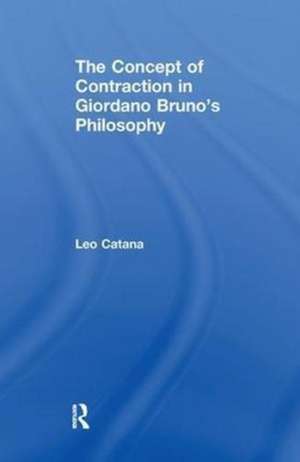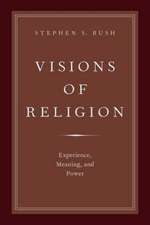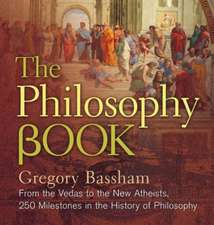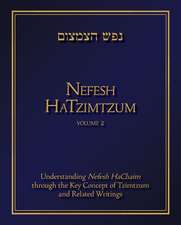The Concept of Contraction in Giordano Bruno's Philosophy
Autor Leo Catanaen Limba Engleză Paperback – 25 sep 2017
| Toate formatele și edițiile | Preț | Express |
|---|---|---|
| Paperback (1) | 386.77 lei 3-5 săpt. | +22.67 lei 10-14 zile |
| Taylor & Francis – 25 sep 2017 | 386.77 lei 3-5 săpt. | +22.67 lei 10-14 zile |
| Hardback (1) | 764.63 lei 6-8 săpt. | |
| Taylor & Francis – 28 sep 2005 | 764.63 lei 6-8 săpt. |
Preț: 386.77 lei
Nou
Puncte Express: 580
Preț estimativ în valută:
74.02€ • 76.84$ • 61.72£
74.02€ • 76.84$ • 61.72£
Carte disponibilă
Livrare economică 01-15 martie
Livrare express 18-22 februarie pentru 32.66 lei
Preluare comenzi: 021 569.72.76
Specificații
ISBN-13: 9781138264823
ISBN-10: 1138264822
Pagini: 220
Dimensiuni: 156 x 234 x 15 mm
Greutate: 0.45 kg
Ediția:1
Editura: Taylor & Francis
Colecția Routledge
Locul publicării:Oxford, United Kingdom
ISBN-10: 1138264822
Pagini: 220
Dimensiuni: 156 x 234 x 15 mm
Greutate: 0.45 kg
Ediția:1
Editura: Taylor & Francis
Colecția Routledge
Locul publicării:Oxford, United Kingdom
Cuprins
Contents: Introduction. Part 1 Bruno's Concept of Contraction: Methods facilitating noetic ascent; Contraction as an ontological concept; Contraction and noesis; Contraction and memory. Part 2 Sources of Bruno's Concept of Contraction: Physiologically induced contraction; The scholastic tradition of contraction; Cusanus and the scholastic tradition of contraction. Conclusion; Bibliography; Indexes.
Notă biografică
Leo Catana is from the Department of Philosophy at the University of Copenhagen, Denmark.
Recenzii
'... a highly erudite, specialized work of scholarship that is well conceived and constructed... Catana does an excellent job making sense of the complexity inherent in many aspects of Bruno's metaphysics: for this readers of Bruno should be most appreciative.' Renaissance Quarterly
Descriere
Through the concept of contraction, Giordano Bruno (1548-1600) endeavoured to explain the relationship of God to his Creation in a way that conformed with his pantheistic view of nature as well as his heterodox view of man’s relationship to God. Bruno denied the efficacy of the several psychical, psychological and medical states traditionally thought to aid contemplation and noetic ascent towards God. In his view the only means was philosophical contemplation, the use of memory being one important form. Philosophical contemplation elevated the mind from the fragmented multiplicity of sense impressions to an understanding of the principles governing the sensible world. This publication is the first book-length study dedicated to concept of contraction in Bruno’s philosophy. Moreover, it explores his sources for this concept.
















